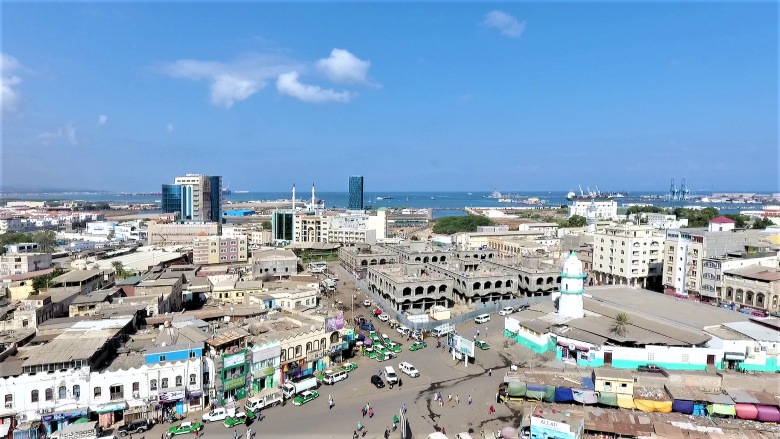After two decades of strong economic growth, Djibouti’s economy is expected to slow dramatically as the government takes restriction measures to avoid rapid and wide spread of COVID-19 in local communities and strain of health care systems. Per capita GDP is expected to contract for the first time since the global financial crisis of 2009. With the rigid monetary regime (currency board) and virtually no fiscal buffers to protect vulnerable households, the social impact of the crisis could be particularly devastating.
After 8.4% in 2018 and 7.5% in 2019, growth is expected to slow to 1.3% in 2020 compared to an initial projection of 7.5%, as the economic machine stops for weeks because of the COVID-19 outbreak. The first case of coronavirus in Djibouti was confirmed on March 18, 2020. As an early response, the Government suspended all in and out international passenger flights on March 18, 2020, closed schools and universities on March 23, and ordered a general lockdown starting from March 27, 2020. While it is early to assess the overall economic impact of these measures, government simulations indicate that they could cost 0.75% of GDP per week of general lockdown for a duration of 8 to 10 weeks needed to flatten the curve.
Despite the COVID-19, the medium-term economic outlook will continue to reflect the Government’s strategy of positioning the country as a regional trade, logistics and digital hub gains traction. GDP growth is projected to rebound to 9.2% in 2021, before falling back to 8.0% in 2022-2025. The speed of the recovery will depend on the depth of the COVID-19 crisis and the effectiveness of the safety net scheme the government is putting in place to protect households and businesses. Growth will remain driven by free zone reexports and exports of transportation, logistics, and telecommunication services. It is expected that poverty will decline thereafter to 13.5% in 2021 and 12.1% in 2022 if Djibouti manages to grow at pre-COVID-19 rates and if this growth is mirrored by job creation that is inclusive and broad based.
